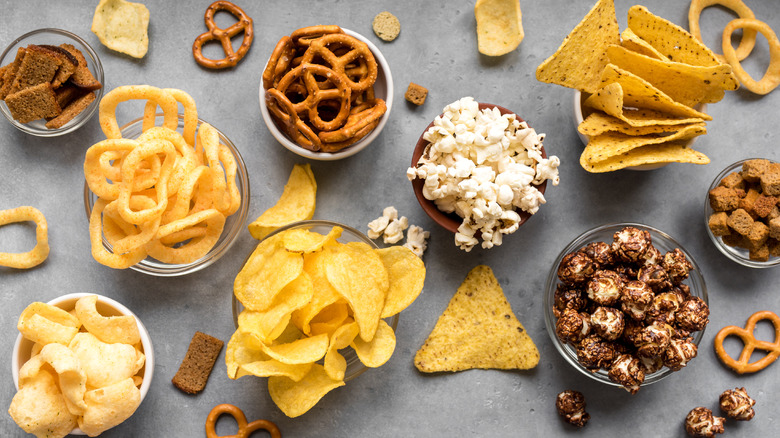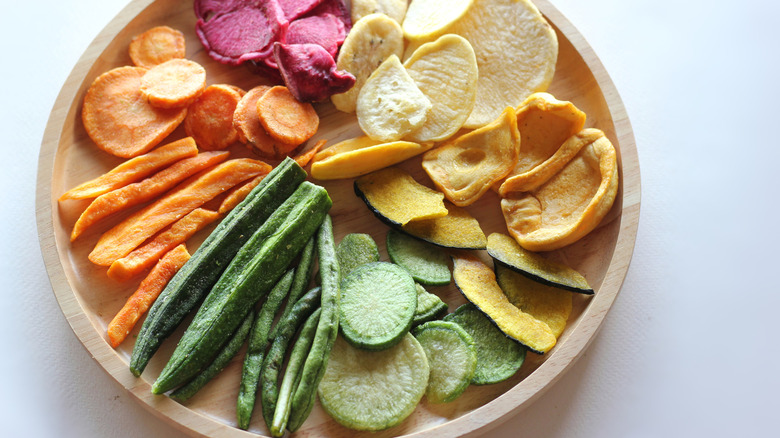Why We Love Crunchy Foods, According To Science
We may receive a commission on purchases made from links.
Is there anything better than biting into a chip or a pretzel and experiencing that delectable crunching sensation? Okay, to be honest, yes, there are a lot of better things, but sometimes that crunch hits so good that we can't help but eat an entire bag of chips before we know what happened. Aside from the fact that chips and pretzels are absolutely delicious, there are actually a few scientific theories and ideas behind our love for crispy, crunchy foods.
Dr. Charles Spence, a Professor of Experimental Psychology at Oxford University, has worked with chefs to bring elements of sensory science into restaurants — and has since developed a line of scientific inquiry referred to as gastrophysics; the study of the variables that affect how we experience drinks and food. He explains it as "the science of the perception of food," (via Epicurious). His "sonic chip" experiment in 2014 won him the IG Nobel Prize and demonstrated that essentially, louder, crunchier chips taste better. But why exactly is that?
While there have yet to be any conclusive lines drawn or evidence found to indicate why, exactly, we love crunchy foods as much as we do, there are several theories. Dr. Charles Spence theorizes that "there may be a primitive thing about the state of foods and their likelihood of being safe or nutritious," (per Epicurious). Fresh fruits and vegetables, for example, tend to have a crispy texture that isn't found once they go bad.
Texture plays a huge role in what foods we enjoy
Of course, there are other ideas too. Neuroanthropologist and research scientist John. S. Allen writes in his book The Omnivorous Mind (via Epicurious), "In terms of assessing freshness, the 'crisp button' in our brains is one that is meant to be pushed ... Our preference for crispy may have originated with insects and fullback plant foods, but cooking makes different foods crispy and moved that preference into the centre of our diet."
It's also worth considering that "chewing is an enjoyable sensory experience that gives great satisfaction," as Dr. Malcolm. C. Bourne wrote in his book, Food Texture and Viscosity, Concept and Measurement. In other words, we go for foods that make that act more sensory increasingly appealing to us. Whatever the real reason is, it's clear that texture plays a huge role in our enjoyment of food. "In many cuisines around the world, creating texture differences in dishes is important," as Epicurious wrote — thus creating textural diversity is a key part of any good dish.
Even basic snacks, like chips and salsa, carrots and hummus, yogurt and granola, and others play on this simple concept. While there aren't any real conclusions yet, science is clearly working hard to determine exactly why we love the crunch factor so much. We'll just keep crunching until they do.

